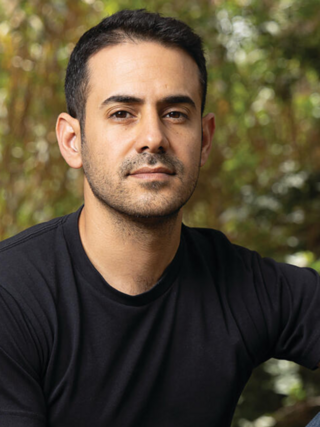The Palestinians' legal campaign against Israel isn't confined to the halls of the International Criminal Court. Arrest warrants targeting Prime Minister Benjamin Netanyahu and former defense chief Yoav Gallant are certainly problematic, but they are likely just the opening act in a much larger offensive. This battle unfolds not only in The Hague but also in airports and various countries around the globe.
The recent complaint filed against the IDF attaché in Belgium, alongside legal proceedings already documented in over 30 different cases worldwide, is just the tip of the iceberg. The driving force behind it has a peculiar name: universal jurisdiction. And it should deeply concern us. Very deeply.
1 View gallery


Former defense minister Yoav Gallant, ICC Chief Prosecutor Karim Khan, Prime Minister Benjamin Netanyahu
Universal jurisdiction is a rather unique legal principle. It allows countries to detain nearly anyone who enters their territory if they are suspected of committing serious crimes such as war crimes or crimes against humanity, in violation of international law.
It is unusual in the legal landscape because it permits such arrests even if the detainee is not a citizen of the host country, has not harmed its citizens and the alleged crimes were neither committed within its territory nor impacted any of its interests.
The authority granted to states to act in this manner stems from the gravity of the suspected actions, which are seen as striking at the "core essence" of the international community. These crimes compel the detaining country, as a member of the family of nations, to act under the principle of universal jurisdiction.
One of the most famous historical examples of the application of universal jurisdiction is the Eichmann trial—and the reasoning behind it is not necessarily intuitive. When Obersturmbannführer (equivalent to a lieutenant colonel) Adolf Eichmann played a central role in the "Final Solution," the State of Israel did not yet exist. One of the legal justifications for trying him in Jerusalem—rather than in Berlin—was the argument that his crimes "afflicted the whole of mankind and shocked the conscience of nations."
Khan announces he would pursue arrest warrants against Gallant and Netanyahu
(Video: ICC)
Thus, when Gideon Hausner, Israel's Attorney General and the chief prosecutor in the case, declared in his iconic opening statement that "With me, at this moment, stand six million accusers," he meant that Eichmann had been brought to justice, in part, under the principle of Israel’s universal jurisdiction.
In recent years, this very principle has become a double-edged sword against the State of Israel and its soldiers. Ironically, pro-Palestinian organizations have turned it into a veritable operational method, filing local complaints ahead of visits by senior Israeli officials to their countries or distributing lists with soldiers' details at airports.
Get the Ynetnews app on your smartphone: Google Play: https://bit.ly/4eJ37pE | Apple App Store: https://bit.ly/3ZL7iNv
They did not always expect this to lead to arrests. Sometimes the goal was rather simply to “troll,” to get inside the heads of every soldier defending Israel or to score a propaganda achievement by capturing a photo of an Israeli official being led in handcuffs to a detention room.
Infamous incidents include the British arrest warrant against Major General (res.) Doron Almog, which nearly resulted in his detention, and the publication of a list of 200 soldiers who participated in Operation Cast Lead, which was circulated online and handed out at various locations.
 Gadi EzraPhoto: Abigail Uzi
Gadi EzraPhoto: Abigail UziThe progression of the war, the bias against Israel and the fact that any soldier with a smartphone can share content with the world with incredible ease significantly amplify this risk like never before.
This doesn’t mean falling into hysteria or that soldiers must avoid post-service travel abroad. However, in addition to strict adherence to the IDF’s strict ethical standards, it is incumbent on the state and the military to deepen awareness of this issue—even among those who haven't declared their plans to travel overseas anytime soon.
Seemingly innocent footage, open to interpretation, could resurface to haunt soldiers long after their regular or reserve service. And of course, soldiers must remember that, in the end, there is no substitute for personal responsibility. No amount of briefings can counteract carelessness on social media. For Israel’s adversaries, this is yet another way to harm them. And here too, as on the battlefield, it’s essential to learn how to defend ourselves.
- Gadi Ezra is the former director of Israel's National Public Diplomacy Unit, international lecturer, lawyer, reservist and author of the book 11 Days in Gaza




